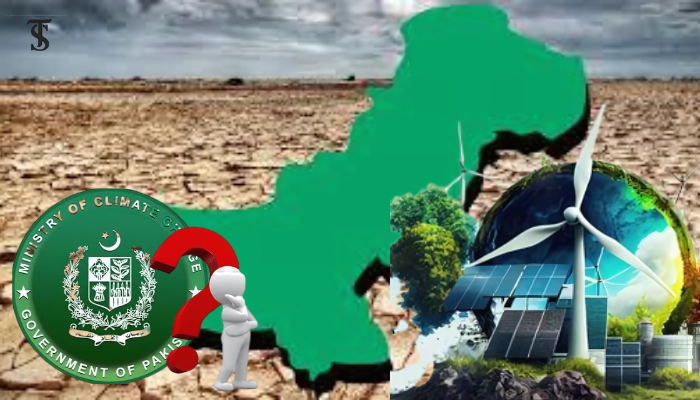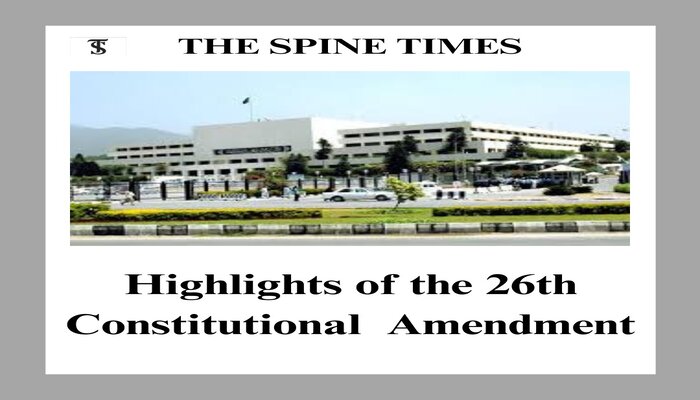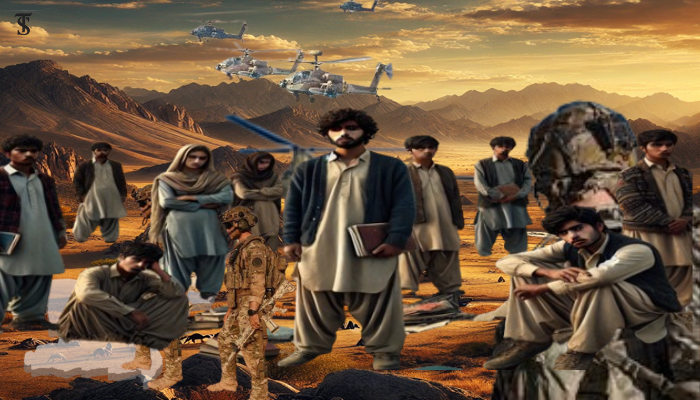The Cost of Climate Inaction in Pakistan

Climate change is an inevitable challenge to the whole world, a problem that has exceeded its boundaries and raised concerns for the future security of mankind, particularly in states like Pakistan. It is a threat that needs to be tackled first. According to the reports of the United Nations, Pakistan is the 5th most vulnerable […]
What is the 26th amendment of the Pakistan Constitution?

A simplified explanation of the 26th Constitutional Amendment to help everyone understand the changes it has introduced to Pakistan’s constitution.
Brain Drain in Pakistan: Causes, Implications, and Solutions

Political instability, unemployment, lack of respect for professionals, and poor working conditions are driving Pakistan’s skilled youth abroad. Addressing these issues with better job opportunities, increased salaries, and transparent recruitment could help alleviate this brain drain.
Soft Power in the Foreign Policy of Pakistan: Challenges and Remedies

Pakistan has historically prioritized traditional power due to regional security threats, neglecting soft power. To counter negative perceptions, it must harness its cultural heritage, promote public diplomacy, and invest in education and skilled labor. Strengthening soft power can enhance Pakistan’s international reputation and support its foreign policy objectives.
Increasing Youth’s Frustration in Baluchistan

The youth of Baluchistan face immense challenges, including poor education, unemployment, sectarianism, and lack of basic facilities. Their frustration is compounded by inadequate infrastructure, outdated curricula, and insufficient opportunities. To prevent their potential from being wasted, the government must invest in education, infrastructure, mental well-being, career counseling, and cultural engagement to ensure a more hopeful future for the province.
Bacha Khan: A misunderstood leader

The man of interminable struggle, incarcerated thirty seven years-the prime times of his life behind the bars with the charge of establishing one of the biggest non-violent movements in the world’s history is still perceived traitor and rebellious to his adversaries
IMF: a Friend or a Foe

The IMF, formed in 1944, is criticized for promoting U.S. hegemony and expanding Western capitalism through loans with harsh conditions. These loans often lead to social unrest, poverty, and weakened domestic economies, as countries face debt traps, privatization of state-owned enterprises, and economic instability under IMF structural adjustment programs.
Equality in Pakistan: An Impracticable Myth

Pakistan’s elite dominates wealth and power, perpetuating inequality through state policies that favor the rich. Corruption, injustice, and misuse of public funds are rampant, with legal loopholes like Diyat benefiting the wealthy. Despite decades of promises, the majority remain impoverished, while the elite thrives at the nation’s expense.
The Intersection of Technology and Democracy: Strengthening or Threatening

Abuse of technology to avoid the fundamental rights of people leads society towards autocracy. The basic motive behind the inculcation of democracy is to protect inalienable rights like life, liberty, and property. However, in today’s world, these values are at bay because the authorities have superseded their basic roles. Governments are involved in various detective measures such as special recognition using thumbprints and other personal information for security reasons which are restricted in democratic societies.
Personalization of Pakistani Politics

Pakistan’s political instability is often attributed to dynastic politics and non-parliamentary interference, but the real issue lies in the lack of democratic character among its citizens. A literate, vigilant society focused on policy debate, rather than personal attacks, can significantly alter the political environment and foster accountability.